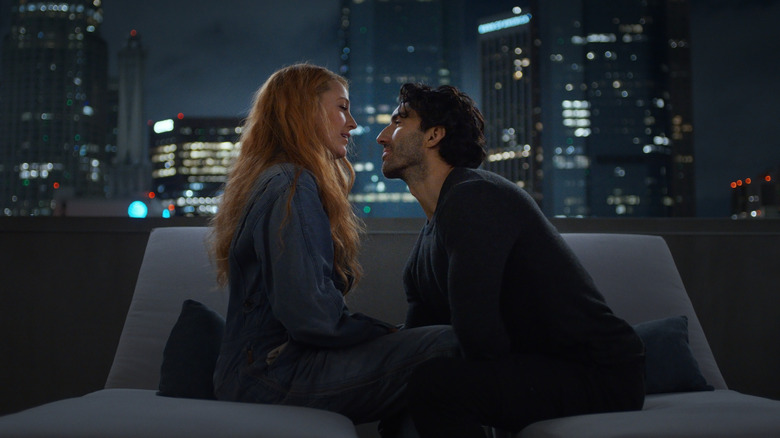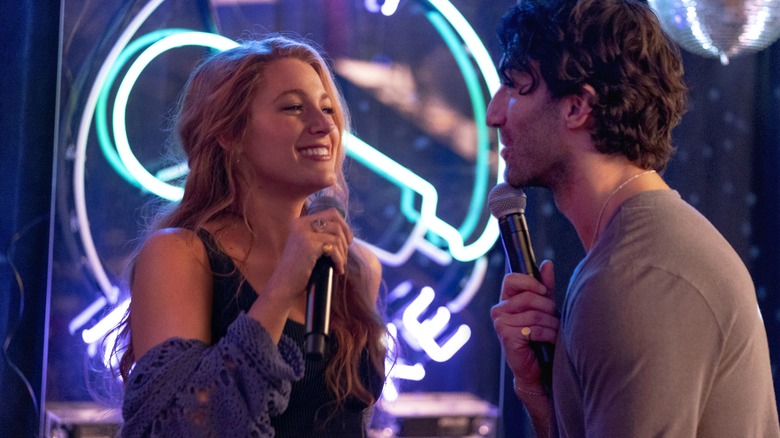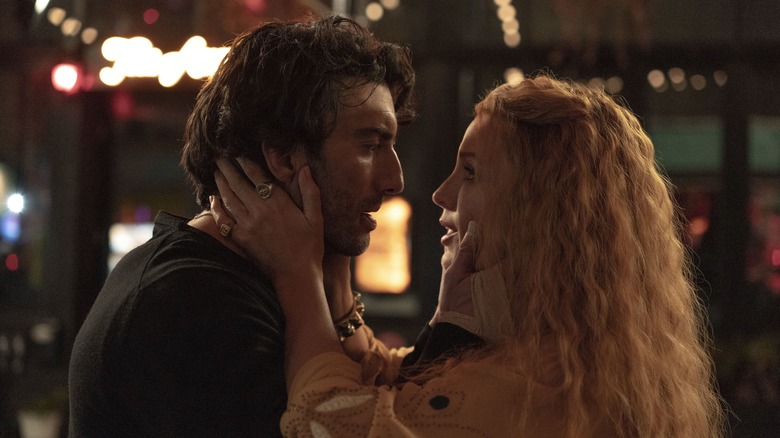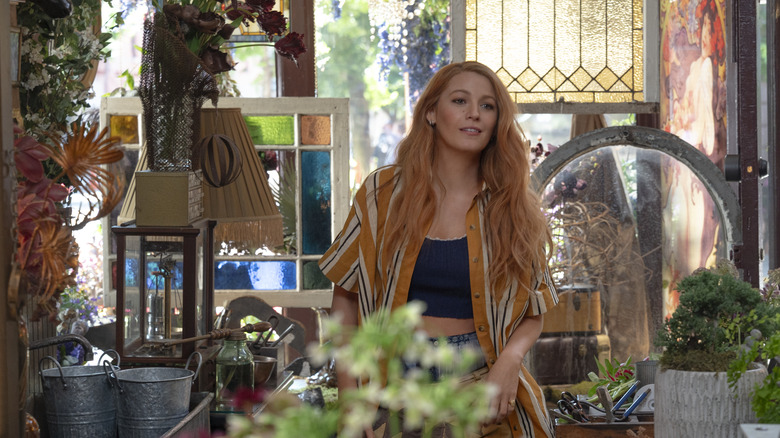It Ends With Us Review: The Vibes Are Weird In This Failed Colleen Hoover Adaptation
- Floral shop is GORGEOUS
- Teen Lily and Atlas have sweet on-screen chemistry
- Cliched writing
- Paper-thin characters
- Weird depiction of the dynamics between abusers and their victims
Fans of Colleen Hoover may eat it up, but for anyone who isn't already in love with the book, "It Ends with Us" is going to play like the bigger-budget version of a particularly melodramatic Lifetime movie your mom watches, sniffling, while she folds laundry. It just somehow — probably on the back of Blake Lively and the star power of bestselling romance author Colleen Hoover – managed to stumble its way into theaters.
Lively and her co-star Justin Baldoni (who also serves as director, a decision that may have been worth reconsidering) are nice to look at, but that's about it. Neither seems up to the challenge of making this material work, and between the flat acting, cheesy storytelling, and overall weird vibes, "It Ends with Us" is a cinematic failure on almost every front. Well, maybe that's not true. The floral shop Blake Lively's character owns is a gorgeously designed maximalist paradise. We'll give it that.
Lily's relationship with abuse
"It Ends with Us" begins with Lily Bloom (played by Blake Lively, and yes, that's really her character's name) attending her father's funeral. He was the mayor of an idyllic town in Maine and also an abusive jerk. After returning home to Boston after the funeral, she's getting some air on the rooftop of a fancy apartment building when she has a meet-cute with the almost supernaturally hot neurosurgeon Ryle Kincaid (Justin Baldoni, and again, yes, that's really his character's name). Since the first two things that happen in their meet-cute are him angrily kicking a chair across the rooftop and trying to control her, the writing is on the wall about what kind of guy he's going to turn out to be.
Still, they grow closer, as his younger sister (Jenny Slate) ends up working in Lily's new flower shop in what will be the first of many convenient plot contrivances, and Lily and Ryle eventually date and fall in love. Alas, a ghost from Lily's past inevitably turns up, the kind and gentle Atlas (Brandon Sklenar), whose troubled upbringing saw him temporarily homeless as a teenager. The two were kindred spirits and each others' first loves, a fact that drives Ryle into extreme jealousy. Ryle lashes out irrationally — and physically — at the woman he claims to love. Will Lily follow in the footsteps of her mother (Amy Morton), who stayed with her husband in spite of how frequently he abused her, or will she carve out a new path for herself? We think you probably already know the answer to that.
A little chemistry would be nice
There are many reasons why "It Ends with Us" is, in the professional nomenclature of film critics, No Good. Some of them revolve around the fact that it's entirely populated by characters so paper-thin that a stiff breeze would send them flying. Blake Lively is one of those actresses who can put in a solid performance with the right material, but this is not the right material. Justin Baldoni, who bravely casts himself and his abs in the role of romantic interest and chief antagonist, gives Ryle such an insidiously negative aura that even in the scenes where he's being sweet and romantic, he's uncomfortable to watch. It also may have helped if the two of them had an ounce of chemistry — they're both undeniably sexy, but their love scenes together have all the sensuality of a Barbie and Ken doll being rammed together with reckless abandon. The younger versions of Lily and Atlas (Isabela Ferrer and Alex Neustaedter, respectively) have more believable intimacy in a single kiss than Lively and Baldoni do in the entire film.
As a director, Baldoni seems a little in over his head as well. He makes the mistake of not trusting his audience, inserting redundant flashbacks that give the film all the subtlety of a ball-peen hammer. One of the key scenes of abuse is shot so ineffectively that — although it's clearly his intention to add a level of ambiguity to them so that Lily only recognizes them as abuse in hindsight — it makes it difficult for the audience to even see what's happening. He also has to be held responsible for the plodding pace of the film as well as the fact that it skips over half a dozen logical closure points, wearing out its welcome.
Weird vibes all around
The biggest problem with "It Ends with Us" is simply that it has extremely weird vibes. There's no escaping the fact that it's framing itself as a domestic violence romance, and while obviously it comes down on the anti-violence side of things, that doesn't mean that it isn't bizarre to watch. It has a message — that abuse is a vicious cycle and that the pattern is likely to continue generation after generation until someone is able to stop it — but a movie needs more than just that. It puts in a lot of work to humanize someone who beats up his wife, and even after Lily makes the inevitable decision to leave him and end the cycle of violence, there are weirdly tender scenes between them that make you wonder exactly what the film is trying to say. It goes out of his way to make excuses for his behavior, even while stammering that there's no excuse for abuse.
All in all, "It Ends with Us" is pretty much a mess. The flashbacks to Lily's budding teen relationship with Atlas are the strongest part of the film, which makes it frustrating whenever we're thrust back into the Lily-Ryle show. Between characters who have no depth to them, cliched dialogue, and a strange approach towards the dynamics between an abuser and their victim, it's hard to recommend "It Ends with Us" to anyone but the most diehard Colleen Hoover fans. Pour one out for Blake Lively and Jenny Slate, who both deserve so much better.
"It Ends with Us" hits theaters on August 9.



